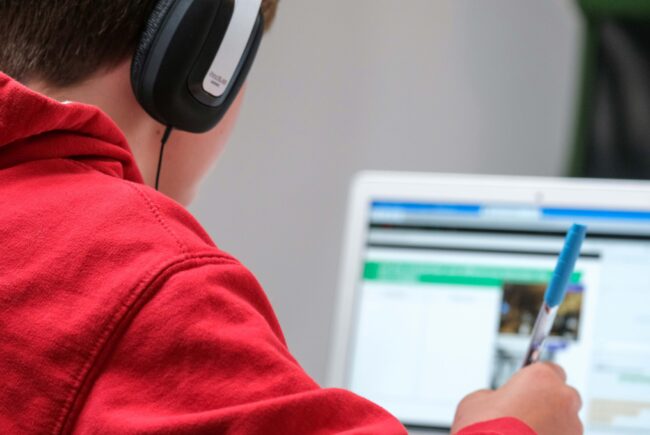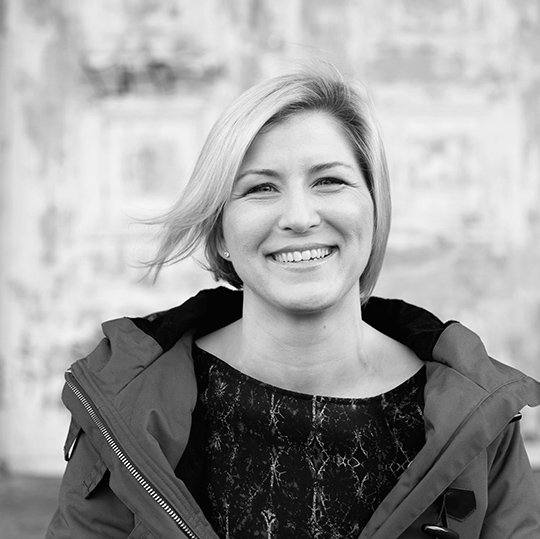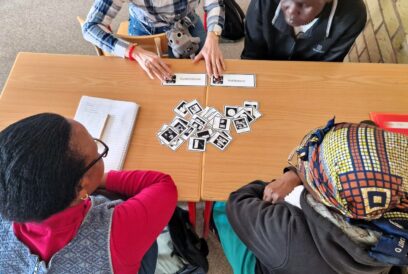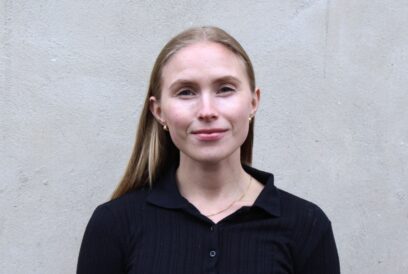In Finland, 2024 marks the year of 'sivistys', a wide-ranging concept that encompasses education, a broad base of knowledge, and much more. We ask two of Finland’s leading thinkers, Kristiina Brunila and Sixten Korkman, to elaborate.
“I think of the Finnish word sivistys as having largely the same meaning as the German bildung or the Swedish bildning,” says Sixten Korkman, a renowned economist and professor emeritus.

“’Sivistys’ means a broad knowledge of various fields, including notably humanist sciences,” says renowned economist and professor emeritus Sixten Korkman. Photo: Sixten Korkman.
“This means a broad knowledge of various fields, including notably humanist sciences, as well as some familiarity with various art forms. In Finland, one often adds the requirement of sydämen sivistys (‘education of the heart’), which refers to certain humanist values such as honesty, justice, and fairness,” says Korkman, who has held senior economist’s posts in Finland and at the OECD. He has also written several acclaimed books on economics targeted at a wide audience, most recently Talous ja humanismi (Economics and Humanism).
“The Finnish word sivistys is quite multifaceted and lacks a direct, single-word equivalent in English,” says Kristiina Brunila, a celebrated professor of social justice and equality in education at the University of Helsinki’s AGORA research centre.
“Defining sivistys precisely is challenging as it is not a singular. I understand it collectively constructed, much like knowledge itself,” says Brunila. “This concept encompasses deep and wide-ranging knowledge, extending beyond formal education to include a general awareness and interest or curiosity of the world.”
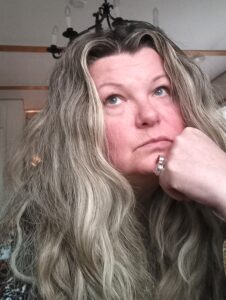
“I see the task of ‘sivistys’ beyond education in a position to offer equally the opportunity for a dignified and meaningful life,” says professor Kristiina Brunila. Photo: Kristiina Brunila.
Sivistys also signifies a culture with rich engagement in cultural, artistic, and intellectual traditions, according to Brunila. “This could imply an appreciation and understanding of literature, the arts, sciences, and philosophy. In this way, sivistys implies a deeper cultural and intellectual cultivation. It’s not just about acquiring information but developing the ability to think critically.”
Looking to the future: adult education
In Finland and Europe, what kinds of challenges will adults need to deal with in everyday life in the 2030s and how could sivistys help them?
“Educators may find it difficult to incorporate the broad ethos of sivistys within the constraints imposed by economic imperatives, which shape educational aims, methods, outcomes, standardized testing, and policies that emphasize competition. In this context, sivistys could provide a form of resistance, empowering the courage to reject these economically driven pressures. It could encourage us to be ‘killjoys,’ unafraid to challenge the status quo when necessary, thereby defending the valuable aspects of education that are at risk,” says Brunila.
As sivistys is about being open and interested, including openness to what one does not know, according to Brunila, she also sees potential.
“I see the task of sivistys beyond education in a position to offer equally the opportunity for a dignified and meaningful life. What is valuable, what kind of knowledge and skills, or what kind of education is desirable, is an open, personal, and societal question,” says Brunila.
Sivistys and the Finnish education system
The Finnish education system, much lauded internationally, is facing many challenges, and some would say it’s in crisis. While the learning results of students across the board is still reasonably high in international comparisons, Finland no longer holds the lead positions it did in OECD comparisons such as PISA results a decade ago or more ago.
Several factors are responsible for the changes and there are many ways the challenges could be met.
“Since sivistys has been closely connected to education, it’s important to understand the transformations within education. The globalization of education, driven by economic imperatives, increasingly regulates our perception of education, its societal role, and the knowledge it should provide. Consequently, education has had to become more open to society and justify its existence by contributing to the production of economic benefits,” says Brunila.
“We should seriously discuss the goals, role, and significance of education if we aim for its mission to extend beyond merely producing easily manageable and adaptable citizens who do not question or resist,” she recommends.
“At its most basic level, sivistys refers to education, but it’s much more than just formal schooling. Nowadays, the discussion on education in Finland rarely focuses on sivistys itself, but rather narrowly on individual learning, competencies, skills, and abilities or know how. Sivistys has been relegated to the backdrop amid changing political ideologies and power struggles, with little interest shown in its current state, significant changes, and future societal position,” says Brunila.
According to Korkman, there are also other issues to be addressed. “The educational challenges are at least partly related to social inequality, and we need to help poor families meet their everyday challenges better than presently is the case. There are also pedagogical challenges related to phenomena such as the internet and the role of social media,” he says.
Sivistys in democracy and economic development
A commonly held belief is that a prosperous and healthy economy creates the basis for the welfare state and enables the Finnish ideal of equal education for all.
“The Nordic welfare state can be seen as being based on certain humanist values, closely related to sivistys. Broad and equal education also enhances the formation of understanding of citizens of the functioning of society, the importance of democracy, rule of law and human rights. Comprehensive education is a key factor both for political democracy as well as for a favourable economic development, including the capacity for innovation,” says Korkman.
“Familiarity with sciences, not least humanist sciences such as history and philosophy, helps the citizen to evaluate critically the information that he or she receives. Critical thinking is a prerequisite for democracy to work. Humanist sciences and arts also develop your capacity for empathy, giving a sense of community and solidarity. Sivistys will also enhance the formation of some basic values common to all or most citizens,” he says.
Sixten Korkman
- one of Finland’s most respected economists
- has held a range of senior positions in the Ministry of Finance and at the Central Bank in Finland, as well as at the OECD
- an Aalto University professor emeritus
- author of numerous books including Talous ja humanismi, Otava 2022 (The Economy and Utopia)
Kristiina Brunila
- a tenured professor at the University of Helsinki and the director of AGORA for the study of social justice and equality in education research centre
- a founding member of the Nordic Centre of Excellence: Justice through Education in the Nordic Countries
- awarded for her teaching and research several times
- research areas include sociology, policy studies, governance, knowledge systems, power and inequalities in education and beyond
More information on Kristiina Brunila here.
Definition of 'sivistys'
Sivistys, or Bildung, much like education, is a concept that it is oriented towards a more humane existence. It consists not only of diverse knowledge, critical thinking, action, and empathy but also the knowledge, skills, and abilities required for the collective resolution of societal problems with others. Present-day pressing societal issues include environmental crises, inequality, and wars. Thus, sivistys cannot be imagined in isolation from these challenges.
The Year of Sivistys 2024
The Year of Sivistys 2024 is designated by the Finnish Ministry of Education and Culture. The theme year is inspired by the 150th anniversary of the Finnish Lifelong Learning Foundation, the oldest foundation for lifelong learning and adult education in Finland.
In the context of the thematic year, sivistys will be explored through the following themes: sustainable future; diversity, equity, and the new Finns; culture and art leading the way; culture and art leading the way; from science to sivistys; literacy and dialogue; lifelong learning and sivistys.
Different organisations and networks can also organise their own events to be included in the Year of Sivistys 2024.
How do Finnish teenagers define ’sivistys’?
What does sivistys mean? This question was posed by Kulkuri Online School to its students, 13-year-old Finnish girls and boys living abroad. The answer was clear: good manners, wisdom and peace.
The same question was addressed to students’ parents. The answers were similar: the ability to live in peace, good behaviour and cooperation. According to these answers, it is easy to conclude, that sivistys is an important tool in promoting peace. However, in other contexts, the term may have different interpretations. Sivistys evolves with time.
In the Finnish Kulkuri Online School, children from the first grade to the ninth grade can study all school subjects in Finnish and, if needed, even get a basic education certificate. The school has almost 500 students living in 60 countries on six continents. There might be kids studying in the Finnish school system even in your hometown!
Text by Katriina Palo-Närhinen

